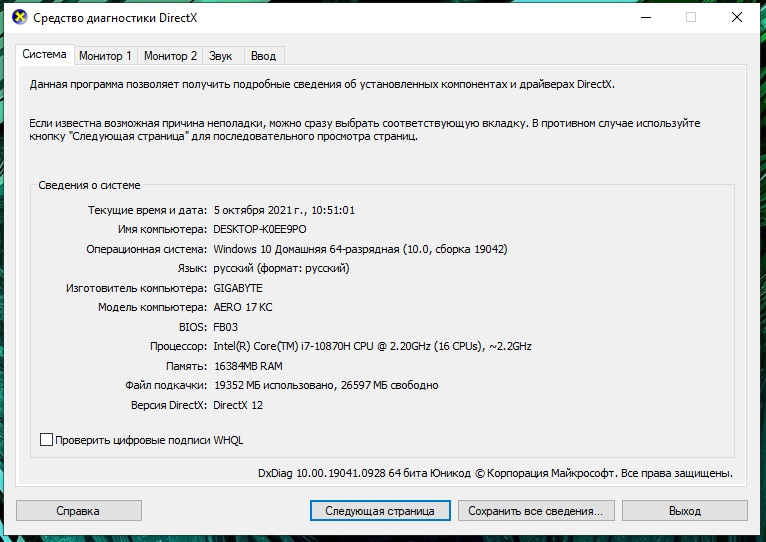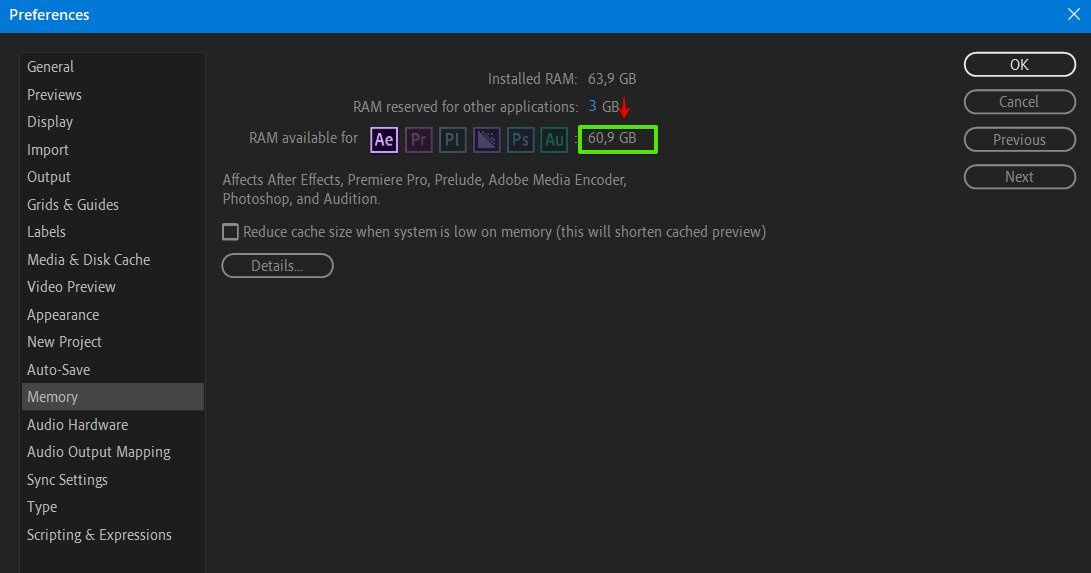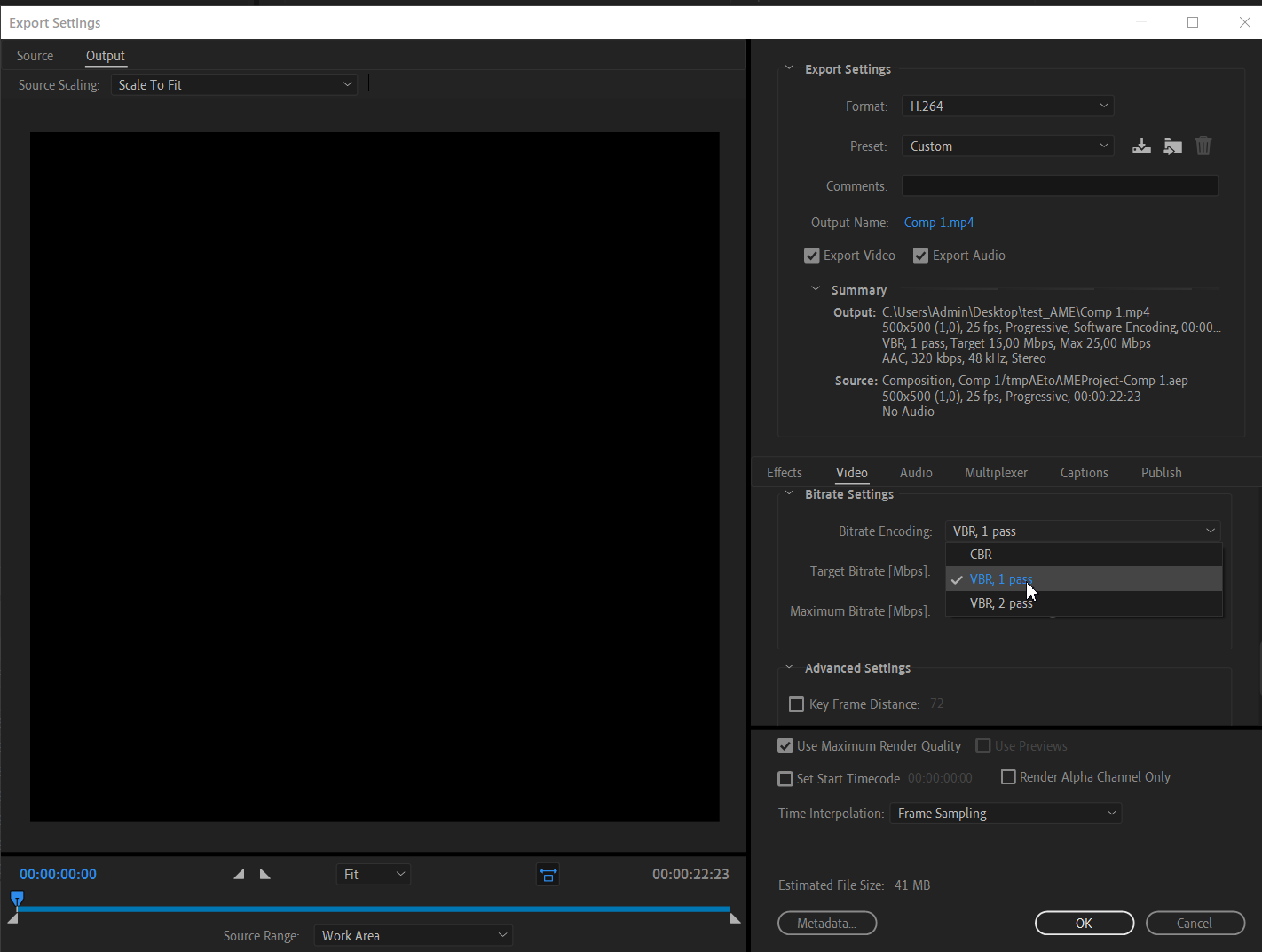Answer the question
In order to leave comments, you need to log in
Why does a 6 minute video take more than a day to render in Adobe after effects?
Good afternoon, tell someone, please, an animation video was made for 6 minutes, it has been rendered for 16 hours and shows that it will still be rendered 10 ... The animation file was created in Adobe after effects, I already tried it through the encoder in H264 format and in the after itself in quickswap format, it's still very long.. Effects were used in the file (write on, and the appearance of objects by scale, fear and position). There are 150 objects in total. Motion Blur is disabled, 3D effects are not used.
Notebook specifications in the photo
Is it possible that 6 minutes of video will be rendered for 30+ hours each time?
Answer the question
In order to leave comments, you need to log in
Based on the fact that you have only 16GB of RAM, it can be assumed that it is slow because of this.
The fact that Motion Blur is turned off is very good.
But there are other points:
1) is the maximum used RAM set in the AE General->Memory settings, by reducing the memory reserve for other programs (or in the Media Encoder settings (Preference->Memory) - these settings change dynamically for these applications)?

2) do you clean memory before rendering in AE: Edit -> Purge -> All memory & Disk Cache ?
3) is the cache size increased in the General->Media&Cache settings higher than the standard ones (32GB for example)
4) is the cache entry set to SSD, but not to the HDD in the same
place 5) is the file rendering recording going to the SSD, not to the HDD?
6) after launching Media Encoder with a project ready to start, you need to clear the memory (point 2) and, very importantly, close After Effects.
7) in the Export Settings in the encoder in Video->Bitrate Encoding, be sure to set 1 pass (pass)

Also, in the same settings, you can lower the FPS rate, rendering at 60 fps, as it was said here, is not worth it at all. 24fps will be enough, but in case of terrible rendering speed, you can set the rate lower.
8) I can give you a little more advice, which sometimes saves me up to 50% of the time: before rendering, when the composition is already in the Media Encoder panel and configured as it should: close the encoder and restart the Windows session on the PC. Then run the encoder (the composition will be added) and start the render.
Well, apparently because 6 minutes of a regular HD video is, for example, 1920x1080, 16 million colors, multiplied by 60 frames per second and we get:
360 seconds minutes of 60 frames = 21,600 images that need to be processed and applied several effects.
And then compress all this in two h264 passes, while storing it all somewhere else (and if you take raw, then 1920 * 1080 * 4 * 21600 = 158 gigabytes)
Therefore, yes, rendering always requires huge capacities.
You hear how cool movie scenes cost millions to render. That's because, yes, rendering, in addition to the work of 3D artists and editing, also costs very strong computing power.
I would say that your main load is more on the video card. But also on disk.
The question is strange to say the least ... How do we know what kind of animation you have there. You can render a minute for a week, depending on what you stumbled there.
Example:
Just a video per minute with left and right movement animation. Render 30 seconds.
The same video, without motion animation, but with a flower core from mejikbuletluk thrown over the top - 10 minutes.
Didn't find what you were looking for?
Ask your questionAsk a Question
731 491 924 answers to any question